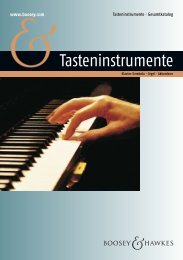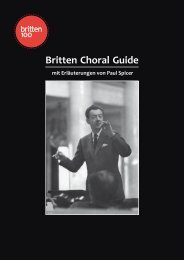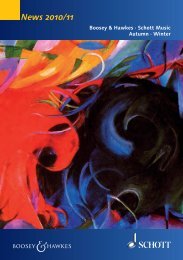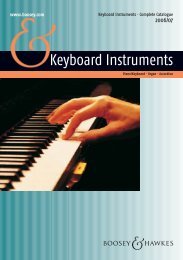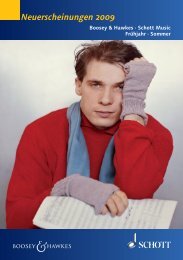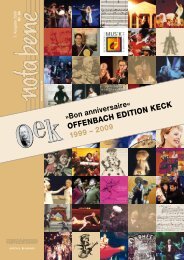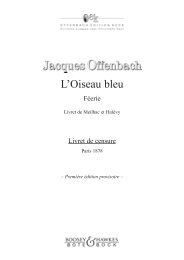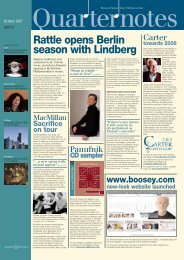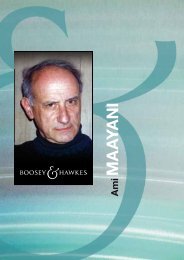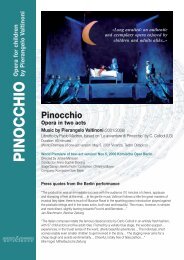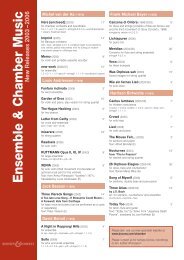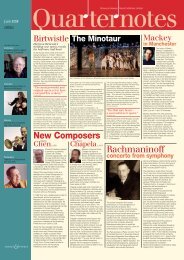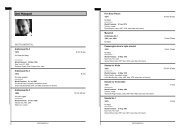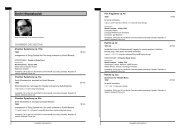You also want an ePaper? Increase the reach of your titles
YUMPU automatically turns print PDFs into web optimized ePapers that Google loves.
INTRODUCTION<br />
trilogy Triduum (1995-97) that this kind of spiritual journey in music,<br />
as exemplified by Beethoven in his symphonies and Bach in his<br />
great ‘Passions’, can be recreated in terms which speak both to<br />
sophisticated musical intelligences and ordinary music lovers –<br />
MacMillan’s more recent large-scale works include his own very<br />
personal response to the classic St John Passion narrative. His<br />
choral-orchestral Quickening (1998) brought a potent reminder<br />
that compelling contemporary music can be inspired by the most<br />
common human experiences: in this case the conception and<br />
birth of a child. In an age when populism and modernism seem<br />
like irreconcilable poles, James MacMillan’s music continues to<br />
hold out the hope of integration, the healing of painful divisions, of<br />
transcendence.<br />
© Stephen Johnson, 2008<br />
Writer and broadcaster, author of books on Bruckner (Faber),<br />
Wagner and Mahler (Naxos), and regular presenter on<br />
BBC Radio 3’s Discovering Music.<br />
Tryst in the choreography by Christopher Wheeldon, with Darcey Bussell and Jonathan<br />
Cope at the Royal Ballet Covent Garden, London (2002)<br />
INTRODUCTION 8<br />
Photo: Bill Cooper



